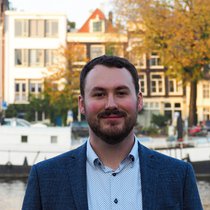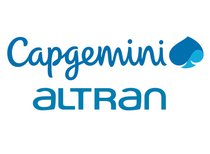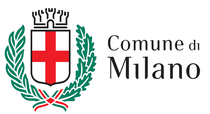The safety and comfort of pedestrian spaces influences the quality of life in cities, but crowding can limit these gains. In recent years, a few European universities and municipalities have developed techniques to actively monitor crowd movements and proactively manage crowded spaces using real-time decision support systems.
Developing a Crowd Management Decision-Support System
These pilot programs have shown that effective crowd management can substantially improve the liveability and sustainability of densely populated urban areas. Yet, at the beginning of 2020, there was no state-of-the-art Crowd Management Decision-Support System (CM-DSS) ready for large-scale deployment.
This is the challenge that a diverse consortium of partners set out to address in the flagship EIT Urban Mobility project, CityFlows. In collaboration with Delft University of Technology (TU Delft), AMS Institute brought together researchers and practitioners in Amsterdam, Barcelona and Milan who have expertise in state-of-the-art sensor techniques, crowd management, governmental regulation, European privacy regulation, machine learning, data analytics and valorization of research output.
This consortium consists of AMS Institute, TU Delft, as well as the City of Amsterdam, ALTRAN, Universitat Politècnica de Catalunya – BarcelonaTech (UPC), the City of Barcelona, ENEA, the City of Milan and AMAT.
Shortly after the project launched, the partners experienced massive set-backs in the wake of Covid-19. Initial timelines were challenged and the scope of the project brought into question as large events were cancelled and tourist crowds disappeared. Despite these set-backs, the partners persevered, adapting the scope to the new reality.
Living Lab Projects in 3 European metropoles
A key desired outcome of the CityFlows project is to boost the quality and accessibility of urban space through different living lab projects in the three partner cities of Amsterdam, Milan and Barcelona.
“Through these city-scale demonstrator projects, the CityFlows CM-DSS software developed by TU Delft and ALTRAN is being tested to illustrate the overall impact of the system and provide management strategies for various types of crowded spaces. These Living Lab projects are integral to testing design assumptions and validating the software in different real-life contexts.”
Tom Kuipers
Program Developer Smart Urban Mobility
The first living lab project was planned at Amsterdam’s Johan Cruijff ArenA and was supposed to take place during the UEFA EURO 2020 soccer championship which has been postponed to 2021. The aim of this living lab is to showcase and evaluate the use of the CityFlows CM-DSS software during large sporting events. The software features a sensor system, including 2D sensors, that will be further built up using data from other sources. The system is fully operational and ready for testing once the crowds will return. Additionally, the CM-DSS has also been adjusted for Covid-19 management in the area, providing insights into levels of crowdedness and social distancing behaviour.
Similarly, the Amsterdam Covid-19 living lab represents an alteration to the original project which was supposed to manage crowds during the large-scale SAIL event that was cancelled due to the Corona crisis. Instead, partners have adapted the operational crowd-monitoring system to monitor social distancing at several busy locations. Real-time data is produced and analyzed by city officials on a daily basis, helping to inform social-distancing measures and communications with the public through dashboards.
Meanwhile, the Barcelona living lab will produce simulations that predict the human behavior around Sagrada Familia. Data regarding flow dynamics will be collected primarily through RFID technology, providing the input for simulations which will eventually be used to redesign the pedestrian space surrounding Sagrada Familia. The pilot is currently in the final design stages and will be fully deployed in 2021.
The Milan Central Station living lab will be testing 5G technology through the set-up of a real-time crowd movement assessment system featuring highly sophisticated computer vision techniques. The municipality, ENEA and ALTRAN have designed a pilot using historical and real-time data collected by fixed and mobile sensors to feed the analysis of the crowd evolution inside the station. Moreover, they are developing a new interesting 5G sensor system that analyzes and classifies pedestrian movements in CCTV images.
Launching a startup to scale results: City Analytics
Despite initial delays due to the Corona emergency, living lab projects in Amsterdam, Barcelona and Milan are well under way. Also, the CityFlows consortium reached a key milestone with the launch of the start-up City Analytics.
This startup is a vehicle for turning the CityFlows CM-DSS into a license-based Software-as-a-Service (SaaS) software package available to managers of pedestrian spaces (i.e. public spaces, train stations, event grounds, shopping malls, schools).
“With the launch of City Analytics, the crowd monitoring technology developed through CityFlows is ready to scale, thereby helping boost the quality of pedestrian spaces across Europe and internationally. This is more urgent than ever, especially as cities are looking for tools that can help them keep the Covid-19 emergency under control in the upcoming months and build resilient public spaces in the future”
Matt Bearden | MSc MADE Alumni | CEO, Co-founder City Analytics

“Compared to its main competitors, the City Analytics software package is hardware independent, cloud-based, highly scalable, GDPR-proof and above all, highly customizable to the user’s needs.”
Dorine Duives | Assistant Professor Civil Engineering and Geosciences | TU Delft | CTO, Co-founder City Analytics

In the coming year, City Analytics will further develop their business case, and also connect other modes of transport, for instance bicycle flows, car flows and public transport. The software package is ready to serve interested parties on the 1st of December onwards. For more information about City Analytics visit www.cityanalytics.nl.
This startup, with TU Delft researcher Dorine Duives and MSc MADE Alumni Matt Bearden as the co-founders, is selected to take part in the AMS startup Booster to further grow and develop.
Knowledge & Educational Activities
A key consideration in launching the CityFlows CM-DSS on a large scale is ensuring that system operators have access to the right knowledge and information to use it effectively. For this reason CityFlows partners are developing an impact assessment of the deployment of the CityFlows CM-DSS for various types of crowded places.
Additionally, an educational package considering innovative crowd-management decision-support systems is being developed. This package will be hosted open-access on the CityFlows website. Besides that, since September, three CityFlows webinars have been hosted bringing together project partners and the broader crowd-management community. Recaps and recordings of the webinars are available on the CityFlows website and a fourth webinar is planned for 2 December on the topic of 5G applications for crowd-management.
Project partners will continue to develop educational activities into 2021, showcasing the results and lessons learned from the different living lab projects and other best practices for crowd-management. Researchers and practitioners working on innovative crowd-management projects are invited to share their work with this growing community of crowd-management professionals.
Contact
To learn more about the CityFlows project visit www.cityflows-project.eu or contact:
| Duration: |
|
Project members
Partners









